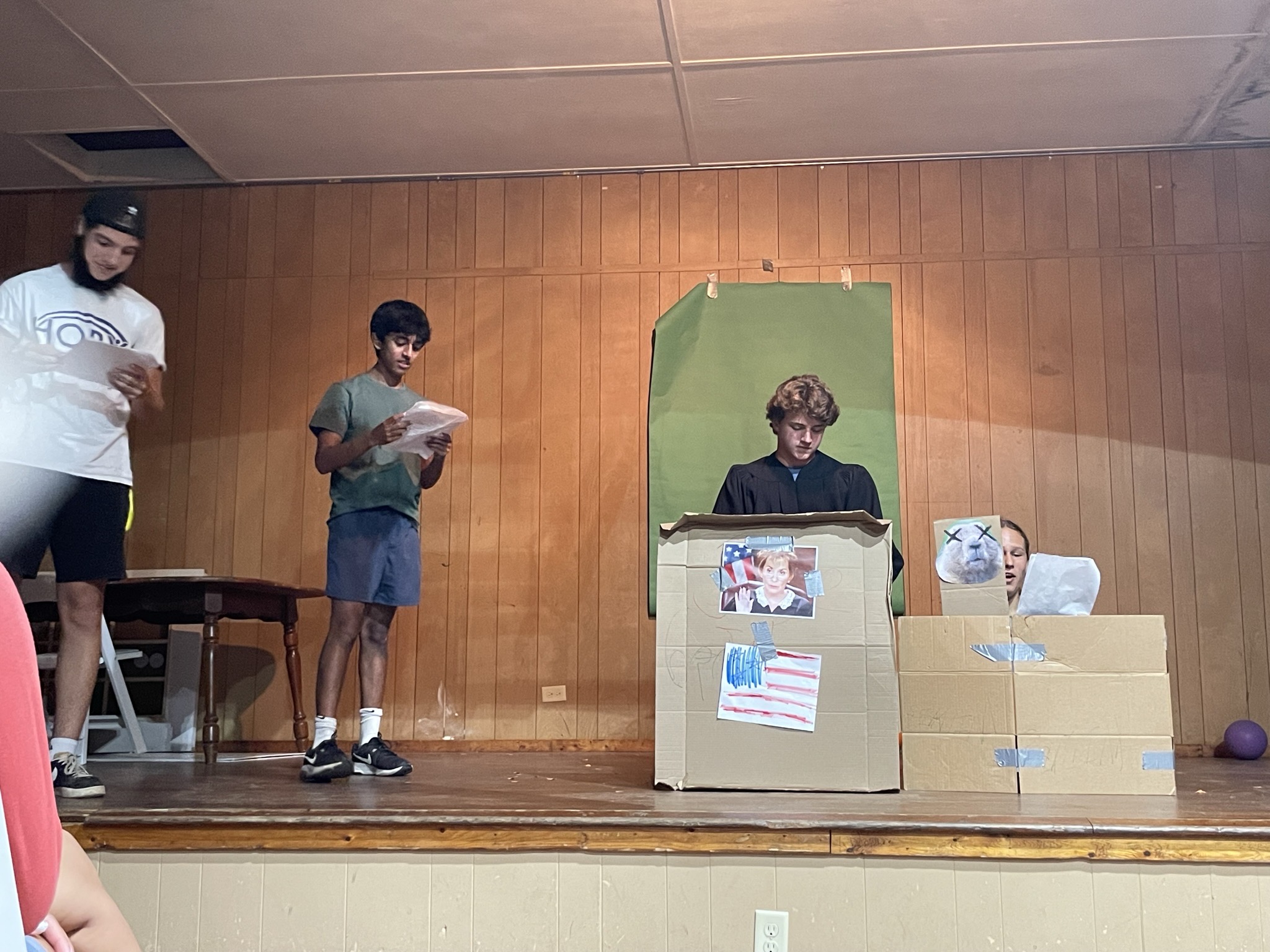
Humanities is a unique course which combines aspects of reading of writing with history, encapsulating the study of humans. We cover a diverse subject area in class such as human nature, discrimination, culture differences, and world history through readings while practicing writing skills such as writing satires and timed essays. In class, we often complete reading and analyze them in large open class discussions in which students build upon each other's ideas and debate. As well, we write essays on different topics both alone and in groups. It is an open space where we learn what it means to be human.
During the summer before junior reading, the whole grade reads Walden, the book by Henry David Thoreau detailing his life living alone in a little cabin on Walden Pond. When we come together in the fall, we have many discussions about our thoughts and feelings on the book. One of the assignments stemming from these discussions is to create a skit with your group that relates to the book Walden and the ideas presented in it. These skits were then performed to the grade. Our group chose to do a skit where Thoreau is put on trial for being a hypocrite, as various characters and concepts from the book take the witness stand to argue for his guilt or innocence. Below is the script for the skit as well as a picture from the performance. View here.

As a part of our unit on satires, we were given an assignment to choose a satire from the internet and write an essay analyzing it and its use of satirical devices. After a very fun process of sorting through many comedic satires on the internet, I settled on a piece about wealth division. Here is the essay which takes a look at the satire and explains how it uses different devices to support the hidden meaning of the satire. View here.
“it is a moist thick lobe, a word especially applicable to the liver and lungs and the leaves of fat (jnai, labor, lapsus, to flow or slip downward, a lapsing; jiais, globus, lobe, globe; also lap, flap, and many other words); externally a dry thin leaf, even as the f and v are a pressed and dried b. The radicals of lobe are lb, the soft mass of the b (single lobed, or B, double lobed), with the liquid l behind it pressing it forward. In globe, glb, the guttural g adds to the meaning the capacity of the throat”